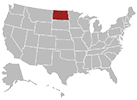
If considering a career in pharmacy, you have options.
You can learn how to become a Pharmacy Technician in South Dakota as a standalone career.
Otherwise, you can work assisting in a pharmacy before becoming a Licensed Pharmacist.
Page Navigation
Licensing Requirements to Become a Pharmacy Technician in North Dakota
The North Dakota Board of Pharmacy provides extensive information for both Pharmacy Technicians and Licensed Pharmacists.
You can find the Pharmacy Technician Requirements Document listed on this Board web page (home page).
The ND Board did post this update in 2022:
Pharmacy Technicians now have the authority to prescribe tobacco cessation therapies.
They can also offer immunization treatments.
In addition, the ND Board also established controlled substance disposal sites for patients who no longer need their medications.
Pharmacy Technicians will have to prepare themselves for these changes.
ND Pharmacy Tech Registration Requirements
The ND Board requires annual board registration for Pharmacy Technicians.
Registrants must also display the registration card they receive in a prominent place visible to the public.
Pharmacy Technicians also must attend board-approved training.
Furthermore, they need to acquire mandatory Pharmacy Technician Certification Board (PTCB) certification.
New technicians must show proof of certification before registering.
The ND Board of Pharmacy also requires training approved by the American Society of Health-Systems Pharmacists (ASHP).
Look for additional information about qualifications to become a registered Pharmacy Technician in ND here.
5 Pharmacy Technician Schools in North Dakota
Keep in mind all the training and certification requirements for North Dakota.
That will save you time, money, and frustration when signing up for classes.
Take these as suggestions, knowing that you need to verify if the school provides you with the credentials you need.
1. North Dakota State College of Science (NDSCS)
NDSCS offers both a Pharmacy Technician certificate and an associate degree program.
Certificate study usually takes about a year, and an associate program could take up to two years.
The NDSCS one-year program includes an eight-week internship.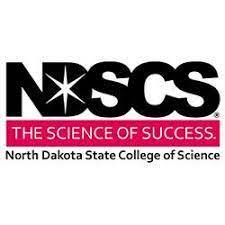
When interning, you will practice your classroom instruction in hospital and community settings.
You will apply for this internship once you have completed your initial classroom requirements.
The certificate instructions include an introduction to all the medication preparation and distribution tasks you’d perform.
It also covers compounding and sterilization and computer data entry.
The associate Pharmacy Technician program furthers your skill development, including the management of medication distribution.
It broadens your knowledge too, which you’ll need if you decide to pursue a career as a Licensed Pharmacist.
2. Rasmussen University
Rasmussen offers a nine-month online certificate training program.
It includes a virtual learning platform that provides you with practice in a way traditional online learning cannot.
The training you receive here focuses on the essentials you need as a Pharmacy Technician.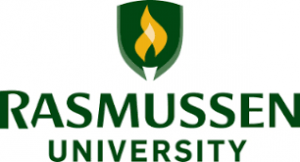
For instance, you’ll learn how to compound and package medications.
This comes after you have become familiar with some of the most common drugs, including brand and generic names.
Upon training completion, you’ll become skilled in delivering accurate, effective prescriptions to patients.
In addition, you will know how to enter patient information into databases.
When they ask you questions, you will also know how to respond to them based on their treatment history.
When combined with real-world experience, this Rasmussen training will prepare you for an entry-level Pharmacy Technician position.
3. University of North Dakota (UND)
UND offers a Pre-Pharmacy Plan of Study that pertains to one or more health science majors, such as Pharmacology, Cell Biology
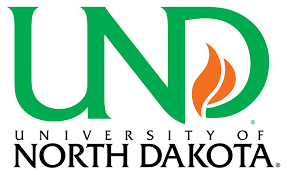
or Biochemistry.
It’s meant for students who perhaps have some experience working in a pharmacy and want to become a Licensed Pharmacist.
The Pre-Pharmacy program is not a major in and of itself.
It pertains to setting up an interdisciplinary plan for a specific purpose.
You also can use this plan if you’re in business, engineering, psychology, or another area indirectly related to pharmacology.
4. North Dakota State University
ND University has a School of Pharmacy.
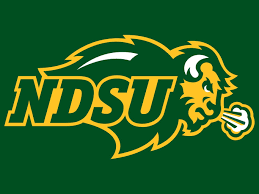
They offer at least four pathways for students desiring to enter the field of pharmacy.
One of the options pertains to people already working as a Pharmacy Technician.
The programs offered will prepare you to move on to become a Licensed Pharmacist.
Program durations vary, and they’re meant for degree-seeking students.
They offer both undergraduate and graduate programs.
5. NetCE (Continuing Education)
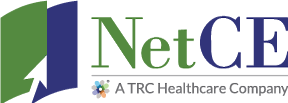
NetCE has a database of continuing education (CE) courses.
Offerings change periodically, but some of them pertain to ND CE requirements.
It will provide you a chance to complete continuing education courses as required by the Board of Pharmacy.
Pharmacy Technician Schools in North Dakota
Top 5 Schools in North Dakota
| School Name | Address |
|---|---|
| North Dakota State College of Science (NDSCS) | 800 6th St N, Wahpeton, ND 58076 |
| Rasmussen University | 4012 19th Ave S, Fargo, ND 58103 |
| University of North Dakota (UND) | Grand Forks, ND 58202 |
| North Dakota State University | 1301 Administration Ave. Fargo, ND 58102 |
| NetCE (Continuing Education) | 1482 Stone Point Dr, Roseville, CA 95661 |
Pharmacy Technician Salary in North Dakota
In North Dakota, the average annual income for an entry-level Pharmacy Technician reported in July 2022 is $34,946.
The typical salary ranges from $31,512 to $38,994 per year.
With additional training and experience, you could earn more than $42,679 every year.
Some places where you can find jobs include Valley City, Fargo, Bismarck, and Minot.
Annual Salary Range:Average Salary of Pharmacy Technicians in North Dakota
| City Name | Salary |
|---|---|
| Fargo | $35,000 |
| Bismarck | $35,600 |
| Grand Forks | $32,900 |
| Minot | $35,100 |
| Mandan | $35,600 |
| Dickinson | $35,100 |
| Jamestown | $34,700 |
| West Fargo | $35,000 |
| Williston | $35,100 |
| Wahpeton | $34,400 |
Regional Salary in North Dakota
| Region | Employed | Avg. Annual Salary | Avg. Hourly Pay | Top 10% Annual Salary | Bottom 10% Annual Salary |
|---|---|---|---|---|---|
| Bismarck, ND | 160 | $48,150 | $23.15 | $58,910 | $37,650 |
| Fargo, ND-MN | 440 | $45,850 | $22.04 | $57,830 | $37,340 |
| Grand Forks, ND-MN | 90 | $45,700 | $21.97 | $56,740 | $37,100 |
| Minot, ND | 50 | $48,830 | $23.48 | $59,080 | $37,380 |
* Employment conditions in your area may vary.
Frequently Asked Questions
How much training does a ND Pharmacy Technician need?
You can start out working toward your first certificate, which you can earn in about a year.
You can start working before you get certified and earn while you learn.
This does call for close supervision until you’ve developed allowed skills.
What can a ND Pharmacy Technician do and not do when working?
With the exception of limited prescription rules set by the ND Board, a Pharmacy Tech can’t prescribe medicines.
They can answer basic questions, especially if relaying a message from a Pharmacist, but they can’t provide detailed advice regarding symptoms and diagnosis.
How much does ND Pharmacy Technician training cost?
The certificate programs typically range from about $3,000-$5,000.
Degree programs, such as for an associate or bachelor’s cost about twice that per year or more.
It’s possible to apply to a program that is eligible for financial aid though.




